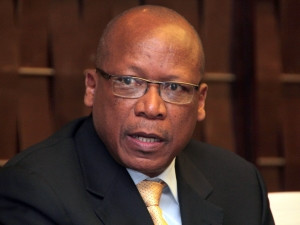
The telecoms industry and mobile technology have greatly enabled us to close the gap between the developed and the developing world.
But in terms of actually delivering ubiquitous connectivity, there is still much work to be done, according to Sifiso Dabengwa, executive director, group president and CEO of the MTN Group. He was sharing his thoughts during the GSMA Mobile 360 event under way in Century City, Cape Town.
Dabengwa cited the unavailability of spectrum as one of the biggest stumbling blocks, which ties into complex interactions that are commonly present between policy-makers, regulators and operators. At present, there is not a single city on this continent that has continuous 4G coverage, he continued.
"The idea of having universal access is positive but we need to do everything else from a regulatory point of view to ensure this will actually happen. It is almost impossible to provide these services without sufficient spectrum."
Speaking specifically about technological innovations, he stressed that new technologies must be created in a manner that significantly improved spectrum utilisation and efficiency.
These investments need to be happening for the long term - it will be expensive but it is a worthwhile investment, he noted. This is essential in order to ensure future developments are not restricted by insufficient spectrum availability. And this spectrum has to be available ahead of time so that we can swiftly respond to changes in demand.
"Regulators and policy-makers must create an environment that makes it possible for operators to invest."
Dabengwa described mobile financial services as a key way the industry can make a tangible impact and change the lives of more marginalised groups of society. "This sort of thing should be welcomed by more formal financial services institutions."
He believes this to be a catalyst that will develop informal businesses into formal ones. And as the industry strives to blanket developing regions with network coverage, Dabengwa highlighted the importance of making this technology freely available in schools.
"Focusing on the young in schools is one of the most important things that needs to be done in terms of mobile and digital literacy."
From a macro perspective, the investment story in Africa is still a positive one, he said. Growth rates will slow, but penetration rates across the continent will continue to improve, as will the utilisation and need for services, new apps and new opportunities.
Share